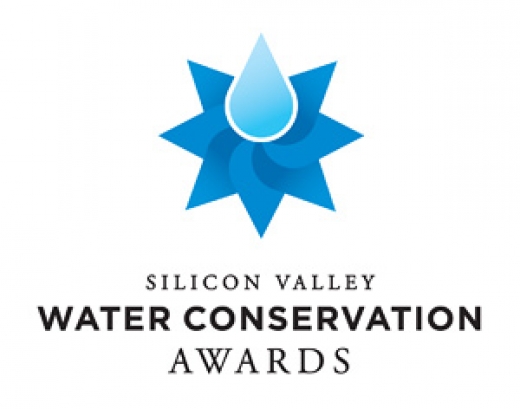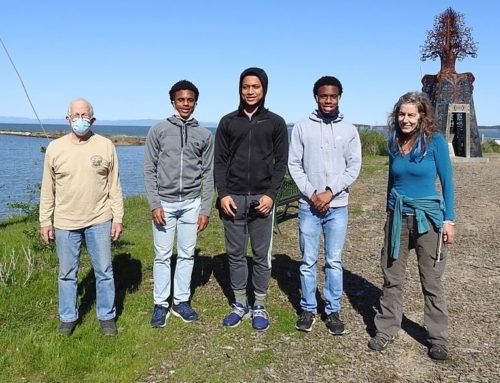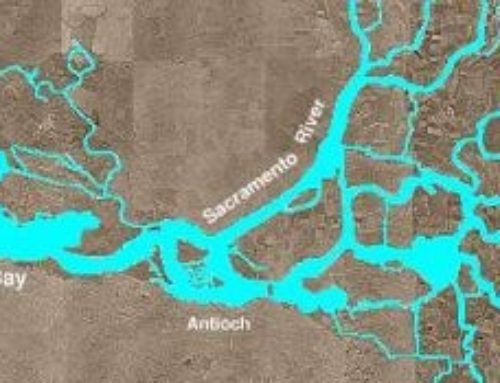-
Silicon Valley Water Conservation Awards to Honor Eight Champions Today
Silicon Valley Water Conservation Awards
Thursday, March 22
11am-1pm
Redwood City Council Chambers, 1017 Middlefield Rd., Redwood City
RSVP at http://www.tinyurl.com/RSVPawards Please feel free to invite others.Last year the drought appeared to be over. This year it looks like it’s back. Such uncertainty in precipitation from year to year is likely to be the “new norm” for California in the face of climate change.
Water shortages affect the environment and the economy, and are likely to worsen as population grows and available water decreases. With this in mind, the Silicon Valley Water Conservation Coalition, representing 20 organizations, business networks, cities and water agencies, will present eight water conservation awards on World Water Day – March 22.
The Awards, in their fourth year, recognize organizations and individuals whose programs and leadership have advanced water conservation in Silicon Valley (San Mateo County, Santa Clara County and Alameda County from Hayward south).
The 2012 Silicon Valley Water Conservation Awards will be presented on Thursday, March 22 from 11:00am–1:00pm at the Redwood City Council Chambers, 1017 Middlefield Road. Arthur Jensen, Chief Executive Officer of the Bay Area Water Supply and Conservation Agency (one of last year’s winners), will give the keynote address. The event is free and open to the public, but space is limited, so people should RSVP at www.WaterAwards.org.
2012 Award Winners
Large Government Agency: Santa Clara Valley Water District
Small Government Agency: Estero Municipal Improvement District
Large Business: Adobe Systems
Small Business: Earth Bound Homes
Organization: Our City Forest
Greenscape Management: Waterfluence
Education: Tuolumne River Trust
Water Champion: Frank NiccoliAbout the Winners
Large Government Agency – The Santa Clara Valley Water District is the primary water resources management agency for Santa Clara County. The District has been, and continues to be, a leader in water conservation programs that are sustainable, cost effective and comprehensive. In fiscal year 2010/11 alone, the District achieved a water savings of 52,500 acre-feet (17 billion gallons). Currently, water conservation provides roughly 13 percent of the District’s total water supply. Programs employ a combination of incentives and rebates, free device installation, one-on-one home visits, site surveys, landscape audits and educational outreach. Among other things, the District’s Toilet Rebate/Installation Program has replaced approximately 300,000 inefficient toilets, and its Residential High Efficiency Clothes Washer Rebate Program has replaced more than 100,000 inefficient clothes washers.
Small Government Agency – The Estero Municipal Improvement District (EMID) provides water services for the City of Foster City and a small portion of San Mateo. EMID has an extensive large landscape customer base, which makes up 20-25% of its water demands. In 2009 EMID implemented an innovative water budget program targeting more than 200 large landscape sites. Water budgets are based on irrigated area, plant type, irrigation system design and real-time weather. EMID charges a standard price for water used below a site’s water budget, and a higher, more punitive price for water used above budget. When EMID compared water over budget in 2008 (the year prior to the program) with 2011 (the most recent year), a 42% reduction was realized.
Large Business – Through implementation of water conservation measures, Adobe Systems has reduced its indoor water use at its owned properties by an average of 44%, and irrigation water by 86%. In San Jose alone, Adobe’s water conservation measures save more than 17 million gallons per year. Water conservation measures include sub-metered water systems, real-time monitoring, flow restrictors on all faucets (1.0 gpm), low-flow showerheads (1.5 gpm), waterless urinals (0 gpf), high-efficiency toilets for men’s rooms (1.28 gpf), dual-flush toilets for women’s rooms (1.6 and 1.1 gpf), xeriscaping (all plants are native or adapted to local micro-climates), subsurface drip irrigation, low-volume stream rotary sprinklers and ET-controllers that automatically adjust irrigation based on wireless communication from local weather stations.
Small Business – Earth Bound Homes is a builder and remodeler based in Santa Clara. They built the highest rated green home in California, and are currently building what will be the highest rated LEED-Platinum home in the country. All EBH projects include engineered water saving plumbing systems using state of the art PEX right-sized piping and home run plumbing design. Water fixtures are installed with either restrictors or aerators that allow flows at a fraction of what is required by code. EBH often employs water recycling technologies such as greywater systems and rainwater storage. All of their projects have either xeriscaping or drought tolerant landscaping, greatly reducing or eliminating outdoor water use. The average EBH project uses less than 50% of the water used by the average home.
Organization – Our City Forest is an urban ecology nonprofit located in San Jose. They use virtually 100% recycled water to irrigate plants in their brand new community nursery and training center. With the San José City Council’s goal of planting 100,000 trees, OCF is playing a key role in achieving that success. Their nursery has the capacity to cultivate more than 5,000 trees for distribution to parks, schools, and residents of San Jose and neighboring communities. Drought-resistant plants are grown in nursery rows, as well as in a greenhouse, where native seedlings are cultivated. Xeriscaping throughout the premises further reduces water consumption, while providing beauty to all who visit.
Greenscape Management – Waterfluence helps large urban landscape sites improve irrigation efficiency through customized water use reports, innovative communications and reports ranking public parks departments and landscape maintenance firms with respect to irrigation performance. Waterfluence currently serves 2,000 sites in California. In collaboration with local water agencies, Waterfluence creates a scientifically derived water budget for each large landscape site based on the amount of irrigated area, type of plants, type of irrigation system and real-time weather monitoring. Monthly reports documenting the site’s irrigation performance are distributed to site managers, landscapers, HOA board members and other relevant parties. Analysis has shown that the Waterfluence program has reduced over-watering at participating sites by 26%.
Education – In 2009 the Tuolumne River Trust initiated “That’s the Tuolumne in my Tap,” an environmental education program for 4th-6th grade students covering the source of their water, threats to the Tuolumne and ways to conserve water to help protect the River. Since its inception, the program has reached more than 18,000 students in Alameda, San Francisco, San Mateo and Santa Clara Counties. During the 2010/11 school year, TRT staff and volunteers visited 387 classrooms and engaged more than 10,000 students. Participants follow up with water conservation actions such as a home water audit, a school water audit, an essay contest and a letter to their families focusing on ways they can save water at home. The program also includes a series of community service projects such as rainwater harvesting installations, native plant gardening and local watershed cleanups.
Water Champion – Frank Niccoli is a landscape contractor and educator. In 1979 he founded The Village Gardener, a landscape construction and maintenance company. He limits water waste in landscapes through comprehensive irrigation management and less water-intensive planting and maintenance techniques. The latter include non-chemical pest control methods and a focus on native plants. He has contributed to multiple professional landscaping associations, including the California Landscape Contractors Association, where a water management program (now being used by more than 600 landscape contractors) was developed under his leadership. Since 1996 Frank has developed curriculum and taught classes on sustainable landscape practices, residential irrigation, integrated pest management, California native plants and water management at Foothill College. He also chaired the Foster City Environmental Sustainability Task Force.
The coalition sponsoring the Awards includes: Acterra, Bay Area Water Supply and Conservation Agency, City of Cupertino, City of Hayward, City of Mountain View, City of Palo Alto, City of Redwood City, City of Sunnyvale, Clean Water Action, California Native Plant Society, Imagine H2O, Joint Venture: Silicon Valley Network, Santa Clara County Creeks Coalition, Santa Clara Valley Water District, Sierra Club Loma Prieta Chapter, Silicon Valley Leadership Group, Sustainable San Mateo County, Sustainable Silicon Valley, Tuolumne River Trust and Wholly H2O.







